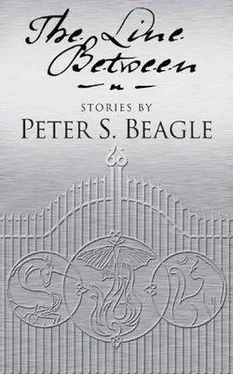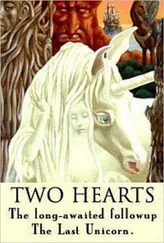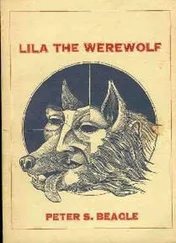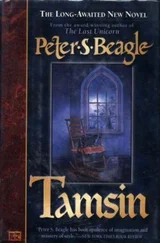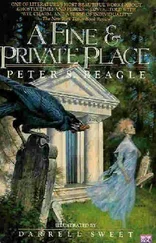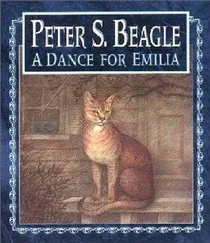Peter Beagle - The Line Between
Здесь есть возможность читать онлайн «Peter Beagle - The Line Between» весь текст электронной книги совершенно бесплатно (целиком полную версию без сокращений). В некоторых случаях можно слушать аудио, скачать через торрент в формате fb2 и присутствует краткое содержание. Жанр: Фэнтези, на английском языке. Описание произведения, (предисловие) а так же отзывы посетителей доступны на портале библиотеки ЛибКат.
- Название:The Line Between
- Автор:
- Жанр:
- Год:неизвестен
- ISBN:нет данных
- Рейтинг книги:5 / 5. Голосов: 1
-
Избранное:Добавить в избранное
- Отзывы:
-
Ваша оценка:
- 100
- 1
- 2
- 3
- 4
- 5
The Line Between: краткое содержание, описание и аннотация
Предлагаем к чтению аннотацию, описание, краткое содержание или предисловие (зависит от того, что написал сам автор книги «The Line Between»). Если вы не нашли необходимую информацию о книге — напишите в комментариях, мы постараемся отыскать её.
The Line Between — читать онлайн бесплатно полную книгу (весь текст) целиком
Ниже представлен текст книги, разбитый по страницам. Система сохранения места последней прочитанной страницы, позволяет с удобством читать онлайн бесплатно книгу «The Line Between», без необходимости каждый раз заново искать на чём Вы остановились. Поставьте закладку, и сможете в любой момент перейти на страницу, на которой закончили чтение.
Интервал:
Закладка:
My name is Floresh Takesti. I am concertmaster of the Greater Bornitz Municipal Orchestra in the town of St. Radomir, in the Duchy of Bornitz in the country of Selmira. I state this only because, firstly, there is a centuries–old dispute between our ducal family and the neighboring principality of Gradja over boundaries, bribed surveyors, and exactly who some people think they are; and, secondly, because Bornitz, greater or lesser, is quite a small holding, and has very little that can honestly be said to be its own. Our national language is a kind of untidy Low German, cluttered further by Romanian irregular verbs; our history appears to be largely accidental, and our literature consists primarily of drinking songs (some of them quite energetic). Our farmers grow barley and turnips, and a peculiarly nasty green thing that we tell strangers is kale. Our currency is anything that does not crumble when bitten; our fare is depressingly Slovakian, and our native dress, in all candor, vaguely suggests Swiss bell–ringers costumed by gleefully maniacal Turks. However, our folk music, as I can testify better than most, is entirely indigenous, since no other people would ever claim it. We are the property of the Austro–Hungarian Empire, or else we belong to the Ottomans; opinions vary, and no one on either side seems really to be interested. As I say, I tell you all this so that you will be under no possible misapprehension concerning our significance in this great turbulence of Europe. We have none.
Even my own standing as concertmaster here poses a peculiar but legitimate question. Traditionally, as elsewhere, an orchestra's first violinist is named concertmaster, and serves the conductor as assistant and counselor, and, when necessary, as a sort of intermediary between him and the other musicians. We did have a conductor once, many years ago, but he left us following a particularly upsetting incident, involving a policeman and a goat — and the Town Council has never been able since to locate a suitable replacement. Consequently, for good or ill, I have been conductor de facto for some dozen years, and our orchestra seems none the worse for it, on the whole. Granted, we have always lacked the proper — shall I say crispness ? — to do justice to the Baroque composers, and we generally know far better than to attempt Beethoven at all; but I will assert that we perform Liszt, Saint–Saens, and some Mendelssohn quite passably, not to mention lighter works by assorted Strausses and even Rossini. And our Gilbert & Sullivan closing medley
almost never fails to provoke a standing ovation, when our audience is sober enough to rise. We may not be the Vienna Schauspielhaus, but we do our best. We have our pride.
It was on a spring evening of 1894 that he appeared at my door: the tall, irritating man we knew as Herr Sigerson, the Norwegian. You tell me now that he had other names, which I can well believe — I can tell you in turn that I always suspected he was surely not Norwegian. Norwegians have manners, if they have no cuisine; no Norwegian I ever knew was remotely as arrogant, implicitly superior, and generally impossible as this «Sigerson» person. And no, before you ask, it would be almost impossible for me to explain exactly what made him so impossible. His voice? His carriage? His regard, that way of studying one as though one were a canal on Mars, or a bacterium hitherto unknown to mankind? Whatever the immediate cause, I disliked him on sight; and should I learn from you today that he was in reality a prince of your England, this would not change my opinion by a hair. Strengthen it, in fact, I should think. Nevertheless. Nevertheless, he was, beyond any debate or cavil, a better violinist than I. His tone was richer, his attack at once smoother and yet more vivid; his phrasing far more adventurous than I would ever have dared — or could have brought off, had I dared. I can be as jealous, and even spiteful, as the next man, but I am not a fool. He deserved to sit in the first violinist's chair — my chair for nineteen years. It was merely justice, nothing more.
When he first came to my house — as I recall, he was literally just off the mail coach that sometimes picks up a passenger or two from the weekly Bucharest train — he asked my name, gave his own, and handed me a letter of introduction written by a former schoolmate of mine long since gone on to better things. The letter informed me that the bearer was «a first–rate musician, well–schooled and knowledgeable, who has elected, for personal reasons, to seek a situation with a small provincial orchestra, one preferably located as far off the conventional routes of trade and travel as possible. Naturally, old friend, I thought of you…»
Naturally. Sigerson — he gave no other name then — watched in silence from under dark, slightly arched brows as I perused the letter. He was a tall man, as I have said, appearing to be somewhere in his early forties with a bold, high–bridged nose — a tenor's nose — in a lean face. I remember clearly a thin scar, looking to be fairly recent, cutting sharply across his prominent left cheekbone. The mouth was a near–twin to that scar easily as taut and pale, and with no more humor that I could see. His eyes were a flat gray, without any hint of blue, as such eyes most often have, and he had a habit of closing them and pressing his right and left–hand fingertips against each other when he was at his most attentive. I found this particularly irksome, as I did his voice, which was slightly high and slightly strident, to my ear at least. Another might not have noticed it.
I must be honest and admit to you that if the dislike at our first encounter was immediate, it was also entirely on my side. I do not imagine that Herr Sigerson concerned himself in the least over my good opinion, nor that he was even
momentarily offended by not having it. He accepted the insulting wage St. Radomir could offer him as indifferently as he accepted my awe — yes, also admitted — when, by way of audition, he performed the Chevalier St–Georges' horrendously difficult Etude in A Major at my kitchen table, following it with something appropriately diabolical by Paganini. I told him that there was an attic room available at the Widow Ridnak's for next to nothing, upon which he thanked me courteously enough and rose to leave without another word, only turning at the door when I spoke his name.
«Herr Sigerson? Do you suppose that you might one day reveal to me your personal reasons for burying your considerable gifts in this particular corner of nowhere? I ask, not out of vulgar inquisitiveness, but simply as one musician to another.»
He smiled then — I can quite exactly count the times when I ever saw him do such a thing. It was a very odd entity, that smile of his: not without mirth (there was wit and irony in the man, if not what I would call humor), but just below the slow amusement of his lips I felt — rather than saw — a small scornful twist, almost a grimace of contempt. Your Herr Sigerson does not really like human beings very much, does he? Music, yes.
«Herr Takesti," he replied, graciously enough, «please understand that such reasons as I may have for my presence here need in no way trouble St. Radomir. I have no mission, no ill purpose — no purpose at all, in fact, but only a deep desire for tranquility, along with a rather sentimental curiosity concerning the truest wellsprings of music, which do not lie in Vienna or Paris, but in just such backwaters and in such underschooled orchestras as yours.» I was deciding whether to rise indignantly to the defense of my town, even though his acid estimate was entirely accurate, when he went on, the smile slightly warmer now, «And, if you will permit me to say so, while I may have displaced the first violin," — for I had already so informed him; why delay the plainly unavoidable? " — the conductor will find me loyal and conscientious while I remain in St. Radomir.» Whereupon he took his leave, and I stood in my doorway and watched his tall figure casting its gaunt shadow ahead of him as he made his way down the path to the dirt road that leads to the Widow Ridnak's farm. He carried a suitcase in one hand, his violin case in the other, and he was whistling a melody that sounded like Sarasate. Yes, I believe it was Sarasate.
Читать дальшеИнтервал:
Закладка:
Похожие книги на «The Line Between»
Представляем Вашему вниманию похожие книги на «The Line Between» списком для выбора. Мы отобрали схожую по названию и смыслу литературу в надежде предоставить читателям больше вариантов отыскать новые, интересные, ещё непрочитанные произведения.
Обсуждение, отзывы о книге «The Line Between» и просто собственные мнения читателей. Оставьте ваши комментарии, напишите, что Вы думаете о произведении, его смысле или главных героях. Укажите что конкретно понравилось, а что нет, и почему Вы так считаете.
